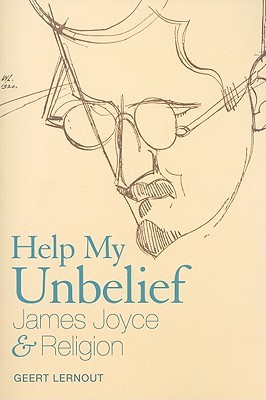
- We will send in 10–14 business days.
- Author: Geert Lernout
- Publisher: Bloomsbury Publishing PLC
- ISBN-10: 1441194746
- ISBN-13: 9781441194749
- Format: 15.5 x 23.1 x 2 cm, minkšti viršeliai
- Language: English
- SAVE -10% with code: EXTRA
Reviews
Description
From the very beginning James Joyce's readers have considered him as a Catholic or an anti-Catholic writer, and in recent years the tendency has been to recuperate him for an alternative and decidedly liberal form of Catholicism. However, a careful study of Joyce's published and unpublished writings reveals that throughout his career as a writer he rejected the church in which he had grown up. As a result, Geert Lernout argues that it is misleading to divorce his work from that particular context, which was so important to his decision to become a writer in the first place. Arguing that Joyce's unbelief is critical for a fuller understanding of his work, Lernout takes his title from Ulysses, "I believe, O Lord, help my unbelief. That is, help me to believe or help me to unbelieve?", itself a quote from Mark 9: 24. This incisive study will be of interest to all readers of Joyce and to anyone interested in the relationship between religion and literature.
EXTRA 10 % discount with code: EXTRA
The promotion ends in 22d.22:01:04
The discount code is valid when purchasing from 10 €. Discounts do not stack.
- Author: Geert Lernout
- Publisher: Bloomsbury Publishing PLC
- ISBN-10: 1441194746
- ISBN-13: 9781441194749
- Format: 15.5 x 23.1 x 2 cm, minkšti viršeliai
- Language: English English
From the very beginning James Joyce's readers have considered him as a Catholic or an anti-Catholic writer, and in recent years the tendency has been to recuperate him for an alternative and decidedly liberal form of Catholicism. However, a careful study of Joyce's published and unpublished writings reveals that throughout his career as a writer he rejected the church in which he had grown up. As a result, Geert Lernout argues that it is misleading to divorce his work from that particular context, which was so important to his decision to become a writer in the first place. Arguing that Joyce's unbelief is critical for a fuller understanding of his work, Lernout takes his title from Ulysses, "I believe, O Lord, help my unbelief. That is, help me to believe or help me to unbelieve?", itself a quote from Mark 9: 24. This incisive study will be of interest to all readers of Joyce and to anyone interested in the relationship between religion and literature.


Reviews